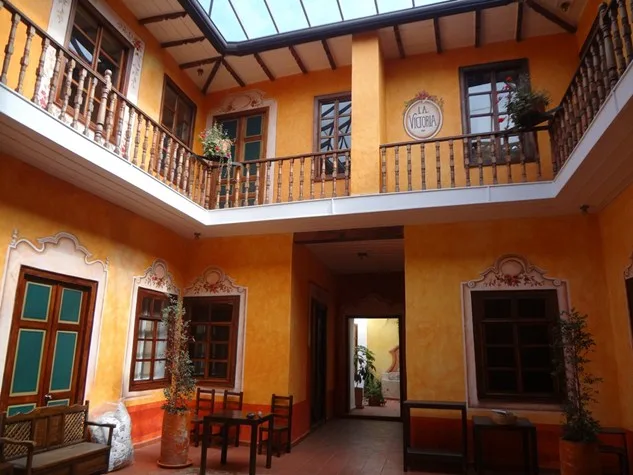U.S. finally decides to investigate fugitive Isaias brothers: Were their millions of dollars stolen from Ecuador?
By Frances Robles
Two fugitive brothers from Ecuador, whose relatives have contributed hundreds of thousands of dollars to American political campaigns, have been investigated by the Department of Homeland Security to determine whether any of the millions the men were accused of pilfering in their home country made it to the United States, according to people close to the case.
Two years ago in Ecuador, the brothers, Roberto and William Isaias, were sentenced in absentia to eight years in prison for embezzling millions from a bank they owned there. In South Florida, where they now live, many see them as respected businessmen, and their family members have donated more than $300,000 to the political campaigns of Democrats and Republicans, including $90,000 to President Obama’s re-election effort in 2012.
The issue has damaged already difficult relations between the two countries, which have been at odds over two other international fugitives: Julian Assange, the WikiLeaks founder taking refuge in the Ecuadorean Embassy in London, and Edward J. Snowden, the former intelligence contractor to whom Ecuador also showed an openness to granting asylum.
But beyond the extradition issue, a division of Immigration and Customs Enforcement is currently conducting a money laundering investigation into the brothers, according to people familiar with the inquiry. It dates to 2011 and focuses on whether ill-gotten money transferred to American banks continues to circulate. Tracking new financial transactions of dubious money would be critical, because the crimes the men were accused of committing in Ecuador took place in 1998 — and the statute of limitations for money laundering is five years, according to a federal law enforcement official familiar with the case.
A prior investigation, in 2003, fizzled after the Ecuadorean government failed to provide documentation on questionable loans and transfers to accounts at Republic National Bank, a financial institution the brothers owned in Miami, another person involved in the case said.
The men deny the allegations and insist that the bank they owned in Ecuador, Filanbanco, failed several years after it was taken over by the Ecuadorean government.
“There was no proof of any wrongdoing on our part,” Roberto Isaias said last month in an interview.
He did not respond to a request for comment regarding the money laundering investigation.
The brothers were among the wealthiest people in Ecuador, with interests in sugar, media, banking and other businesses. In the late 1990s, Ecuador’s banking sector largely collapsed, and thousands of people lost their savings. Faced with a lack of cash to meet depositors’ run on the banks, Filanbanco was taken over by the government, and the brothers stepped down.
The Ecuadorean government says it poured more than $1 billion into Filanbanco, but only because the brothers had presented doctored balance sheets that made the bank appear solvent. In a lawsuit filed in Miami, Ecuador’s government contends that the brothers made questionable loans to companies they controlled and used loyal employees to cover them up.
“Substantial sums” were embezzled, transferred out of Ecuador and hidden abroad, the lawsuit said.
The suit ended in the Isaiases’ favor in June, when a state judge in Miami ruled that Ecuador was trying to recover the $200 million it says the brothers still owe by enforcing Ecuadorean laws in American courts.
A separate criminal investigation against the men in Ecuador had dragged out for more than a decade and was revived only after President Rafael Correa took office in 2008. Mr. Correa confiscated their companies and made a series of maneuvers that many legal observers criticized, such as changing laws and dismissing judges, which helped bolster the Isaiases’ arguments that they were being politically persecuted.
Convinced that the brothers were guilty of serious financial crimes, the United States Embassy in Ecuador for years tried to get their visas revoked, deliberately stalled their visa applications and urged the State Department to deport them. But several American diplomats who worked in Ecuador at the time said the efforts always failed, despite pleas to the highest levels in Washington. The men, the diplomats said, seemed protected.
The case recently resurfaced when an NBC station in New York reported that Senator Robert Menendez, Democrat of New Jersey, was under federal investigation for helping the Isaias brothers with their immigration problems after their relatives contributed to his campaigns. Several other members of Congress also helped the family by writing letters urging the State Department to resolve bureaucratic delays that kept several of the family members from obtaining residency in the United States.
The White House has denied any connection between the campaign contributions and the decision not to extradite the men. The White House did not respond to a request for comment on the money laundering investigation. The Democratic National Committee, which received tens of thousands of dollars from Roberto Isaias’s wife and son, declined to comment.
The investigation raises the possibility that money looted from Ecuador found its way into American political campaigns. Experts said the campaigns should have had tougher vetting procedures.
“It should have mattered to the campaign that they were fugitives,” said Sheila Krumholz, executive director of the Center for Responsive Politics, a research group.
Credit: The New York Times, www.nytimes.com; Photo caption: Roberto Isaias before he left Ecuador for Miami.





















